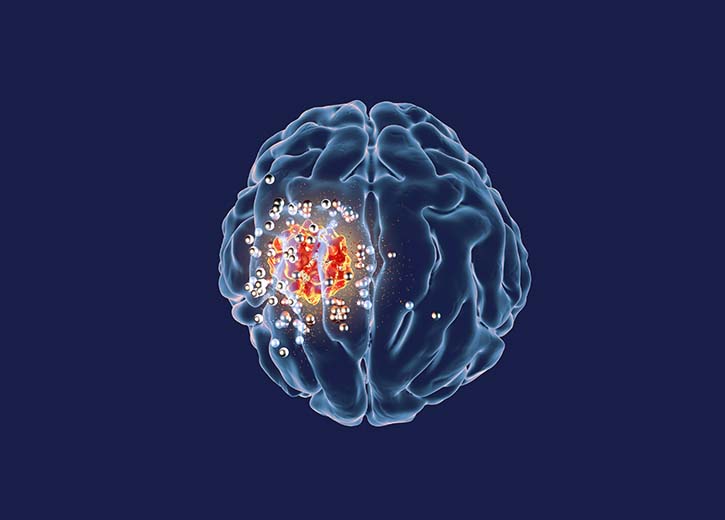A mass of abnormal brain cells is referred to as a brain tumour. Your skull, which protects your brain, is extremely rigid. Any growth inside such a tiny space can cause issues.
Brain tumours can be malignant (cancerous) or benign (not cancerous) (benign). When benign or malignant tumours grow, the pressure inside your skull can rise. This can result in brain damage, which can be fatal.
Brain tumours are classified as either primary or secondary:
· A primary brain tumour develops within your brain. Many primary brain tumours are harmless.
· A secondary brain tumour, also known as a metastatic brain tumour, occurs when cancer cells spread from another organ, such as your lung or breast, to your brain.
Symptoms and diagnoses
The symptoms of a brain tumour can vary depending on the type and location of the tumour. When a brain tumour is discovered, a person may exhibit no symptoms.
· Chronic headaches
· Vision problems
· Seizures
· Personality shifts
· Loss of short-term memory
· Coordination issues
· Difficulties speaking or understanding
Discuss your symptoms thoroughly with your doctor so that everyone has the most up-to-date information.
Depending on where you live or seek medical attention, diagnosing a brain tumour can be a complicated process involving a number of specialists. The first
step is a brain scan, most commonly an MRI. A biopsy may be required, in which case a pathologist will be called in to assist in determining the type of brain tumour.
Consult the best neurologist in Dubai for more clarity.
Treatment
Surgery is the most common treatment for malignant brain tumours. The goal is to remove as much cancer as possible while preserving the healthy parts of the brain.
While the location of some tumours allows for safe removal, the location of others may limit how much of the tumour can be removed. Even partial brain cancer removal can be beneficial.
Infection and bleeding are two risks of brain surgery. Benign tumours that are clinically dangerous are also surgically removed. Metastatic brain tumours are treated in accordance with the original cancer's guidelines.
Other treatments, such as radiation therapy and chemotherapy, can be combined with surgery. Physical, occupational, and speech therapy can all help you recover from neurosurgery.
Treatment for benign brain tumours is frequently successful, and full recovery is possible. Seeking treatment as soon as possible can help to avoid complications that can arise as a tumour grows and puts pressure on the skull and brain tissue. It may also aid in the prevention of malignant tumours from spreading to other brain tissues.
Your doctor can advise you on the best course of treatment to avoid complications and manage any symptoms you may be experiencing. Aster Hospitals is one of the best neurology hospitals in Dubai.
Takeaway
Staying healthy at home is more important than ever for everyone, but it is especially important for patients with malignant brain tumours because cancer treatments such as chemotherapy and radiation can weaken the immune system. One way to stay healthy is to feed our bodies healthy, grounding foods that can help support immune function.



